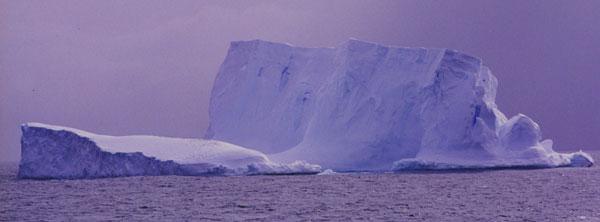
South Korean Fishing Boat Sinks off Antarctica, 22 Feared Dead

Get the world’s most fascinating discoveries delivered straight to your inbox.
You are now subscribed
Your newsletter sign-up was successful
Want to add more newsletters?
Join the club
Get full access to premium articles, exclusive features and a growing list of member rewards.
A South Korean fishing boat sank in the frigid Antarctic waters yesterday (Dec. 12). Of the 42 sailors, 22 are feared dead, according to the latest news reports.
The ship, No.1 InSung, sank mysteriously in the Ross Sea, about 1,700 miles (2,700 kilometers) southeast of New Zealand and 1,100 miles (1,800 km) north of the U.S. McMurdo Station in Antarctica, the Sydney Morning Herald reported. Another Korean vessel rescued 20 survivors and pulled 5 dead from the waters. Another 17 men are missing.
''This is a very unforgiving environment and you are looking at survival times of around 10 minutes without life jackets and immersion suits,'' Sophie Hazelhurst, spokeswoman for Maritime New Zealand, told the Morning Herald.
Eight of the 42 sailors are South Koreans, the Associated Press reported. The other sailors are Chinese, Indonesian and Vietnamese.
Five nearby fishing vessels searched for the missing men, but after a few hours, two ships were released. Long-range aircraft were not deployed to look for survivors because it would have taken too long for the planes to arrive.
Last week, a cruise ship near Antarctica lost power and was battered by waves. The ship later regained power but was still tossed around by huge swells as it limped home to Argentina.
Maritime New Zealand was alerted 6 hours after the 6:30 a.m. sinking, and they do not know why the ship sank or why no distress communication was received. The 190-foot (58-meter) vessel, built in 1979, had fished the high Antarctic for several summers, reported the Morning Herald, citing records from the Commission for the Conservation of Antarctic Marine Living Resources.
Get the world’s most fascinating discoveries delivered straight to your inbox.
In August, another Korean ship, Oyang 70, sank in the Southern Ocean 6 people died and 45 survivors were rescued from life rafts.
Reach OurAmazingPlanet staff writer Brett Israel at bisrael@techmedianetwork.com. Follow him on Twitter @btisrael.
 Live Science Plus
Live Science Plus










